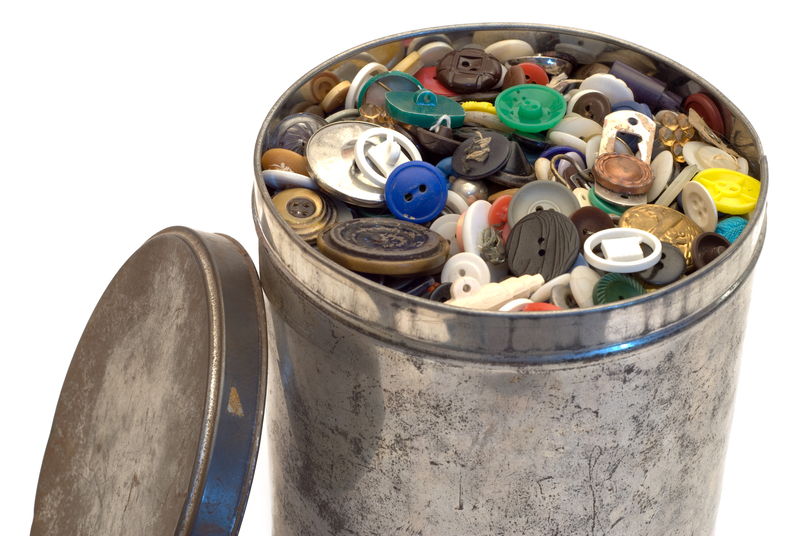Reduce Your Bulky Waste Expenses With These Expert Tips
Managing bulky waste efficiently is essential for both environmental sustainability and your wallet. From unwanted furniture and old appliances to garden refuse and renovation debris, large-item disposal can be both expensive and time-consuming. However, with a strategic approach, you can significantly lower your bulky waste expenses while contributing positively to your community. In this comprehensive guide, we'll reveal proven strategies and expert tips to help you reduce costs, make eco-friendly choices, and streamline the entire process.

Understanding Bulky Waste: Definition and Types
Before diving into cost-saving methods, it's crucial to understand what qualifies as bulky waste. Bulky items are typically those that are too large for regular bins or curbside collections.
Common Types of Bulky Waste
- Furniture (sofas, beds, wardrobes, tables)
- White goods and appliances (refrigerators, washing machines, ovens)
- Garden refuse (large tree branches, heavy garden equipment, sheds)
- Mattresses and carpets
- DIY and renovation debris (bathtubs, doors, windows, construction waste)
Local councils or private waste removal services typically offer special collection or disposal services for these items, often at a significant fee. But don't worry--cutting down your large waste management expenses is possible with the right approach!
Why Bulky Waste Disposal Gets Expensive
Many homeowners and businesses are surprised by how quickly costs add up when disposing of large items. Here's why bulky refuse removal tends to be pricier:
- Transport and labor: Bulky items require more staff and larger vehicles for collection.
- Landfill fees and processing charges, which can vary by item type and size.
- Environmental levies for items containing hazardous materials or electronics.
- Special handling for recyclable or reusable goods.
Top Expert Tips to Lower Your Large Waste Removal Costs
Ready to start saving money on bulky waste disposal? Here are actionable, expert-approved strategies:
1. Audit Your Waste and Plan in Advance
- Make an inventory of items you need to dispose of.
- Separate recyclables, donations, and genuine waste.
- Avoid last-minute removals, which are often more expensive.
2. Sell or Donate Usable Items
One person's trash can be another's treasure. Before paying to remove your large items, consider reselling or donating them.
- Use online marketplaces such as Facebook Marketplace, eBay, and Craigslist.
- Reach out to local charities--many accept furniture and appliances in good condition.
- Organize a garage sale to clear out multiple items at once.
This not only reduces your removal volume (and costs!) but can also put some cash back in your pocket.
3. Leverage Local Council Collection Services
Many councils offer free or heavily discounted large waste collection days. Check your local municipality's website for details, eligibility, and booking procedures.
- Schedule pickups during bulk collection periods to avoid extra fees.
- Understand item limits--plan to dispose of allowable amounts to maximize value.
- If you miss the set dates, consider sharing with neighbors to split costs on private collection.
4. Hire a Skip Bin--But Fill It Strategically
Skip hire can offer convenience and value, but only if you use space efficiently.
- Disassemble furniture to save space.
- Compact items and load the heaviest, bulkiest pieces first.
- Combine waste with neighbors or friends to split rental costs.
- Be mindful of restricted items--avoid extra surcharges.
5. Consider Junk Removal Services for Large Loads
For large or awkward items, professional junk haulage may be the simplest solution. To get the best rate:
- Obtain quotes from multiple providers--don't settle for the first offer.
- Clarify the pricing structure (by item, weight, or load size).
- Ask about discounts for bulk removals or flexible scheduling.
- Share loads with neighbors to benefit from volume pricing.
6. Utilize Community Recycling and Upcycling Centers
Many cities host community recycling points or reuse centers that accept and sometimes even collect large household items for free or a nominal fee.
- Check municipal directories for locations and accepted item lists.
- Drop off items when you have multiple pieces to minimize trips.
- Ask about collection events or donation drives for bulky goods.
7. Break Down and Recycle Where Possible
*Recycling* components is often cheaper (or even free) compared to entire items. For instance, scrap metal yards accept appliances like ovens and washing machines, and you may even earn a small rebate.
- Separate recyclable materials (metals, plastics, electronics).
- Contact local recycling centers for accepted items and drop-off policies.
- Remove hazardous components (such as refrigerants in fridges) as required.
8. DIY Disposal--If It's Practical
If you have access to a suitable vehicle, consider self-transporting large wilderness waste to an authorized recycling or transfer station.
- Many facilities offer reduced rates for personal drop-offs.
- Check item categories, weight limits, and opening hours.
- Borrow a trailer or van to make fewer trips.
Hidden Ways to Lower Bulky Trash Expenses
Bulk Disposal Discounts
Some private waste companies offer special rates when disposing of numerous items or particularly large loads in a single trip. Always ask for a bulk discount and negotiate when booking such services.
Community Clear-Outs
Organize a community-wide clear-out. Not only is this more efficient, but pooling items can attract better rates from junk removal services, and some councils offer free pickups for these events.
Manufacturer Take-Back Programs
Many major manufacturers and retailers have take-back or trade-in schemes for old appliances, mattresses, and electronics. These programs often provide free collection and responsible recycling.
- Contact furniture and appliance stores regarding disposal when purchasing replacements.
- Check if your item qualifies for a free removal as part of a government program.
Complying with Regulations and Avoiding Fines
Improper disposal of large household waste can lead to hefty fines. Always follow local guidelines for item separation, hazardous waste, and recycling.
- Consult council websites for up-to-date regulations.
- Label items correctly if required (especially hazardous goods).
- Never dump bulky items illegally--it's unsafe, irresponsible, and expensive.
Bulky Waste Expense Reduction: Bonus Tips
- Share removal costs: Collaborate with neighbors, family, or friends for shared pickups.
- Schedule disposals during off-peak times--some companies offer lower rates on weekdays.
- Ask about loyalty or frequent-user discounts if you use removal services often.
- Stay updated on government rebate schemes for large-item recycling.
Environmental Impact: Make It Count
Saving money is important, but so is protecting the planet. Every item that's recycled, gifted, or reused instead of sent to landfill is a win for sustainability. Responsible disposal supports your community and helps preserve resources for future generations.

Frequently Asked Questions About Affordable Bulky Waste Disposal
Is there a free way to get rid of bulky items?
Yes! Many councils offer scheduled collections, and charities may collect reusable items for free. Community recycling programs and manufacturer take-backs are also cost-effective options.
How can I reduce my commercial bulky waste charges?
Audit your workplace waste, repurpose or donate usable office furniture, and arrange large-scale pickups through commercial recycling services to benefit from volume discounts.
Can I rent a van and do it myself?
Absolutely. Just check your local waste centers' requirements and ensure items are properly sorted. DIY can save you money, especially if you have multiple pieces.
Are there fines for improper bulky waste disposal?
Yes, illegal dumping can result in steep penalties. Always use approved services or facilities, and follow your area's regulations for safe and lawful removal.
Conclusion: Slash Your Bulky Waste Expenses Today
With a little knowledge and planning, reducing your bulky waste removal costs is achievable. Take advantage of local programs, recycle smartly, sell or donate usable pieces, and join forces with your community. Not only will your wallet thank you, but so will the environment. Start implementing these expert tips immediately and say goodbye to unnecessary bulky waste expenses--while keeping your home and neighborhood clean and clutter-free!